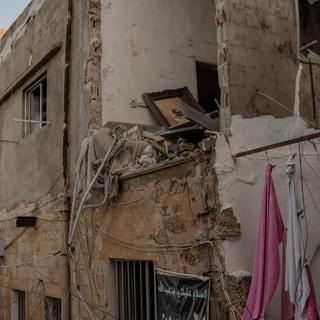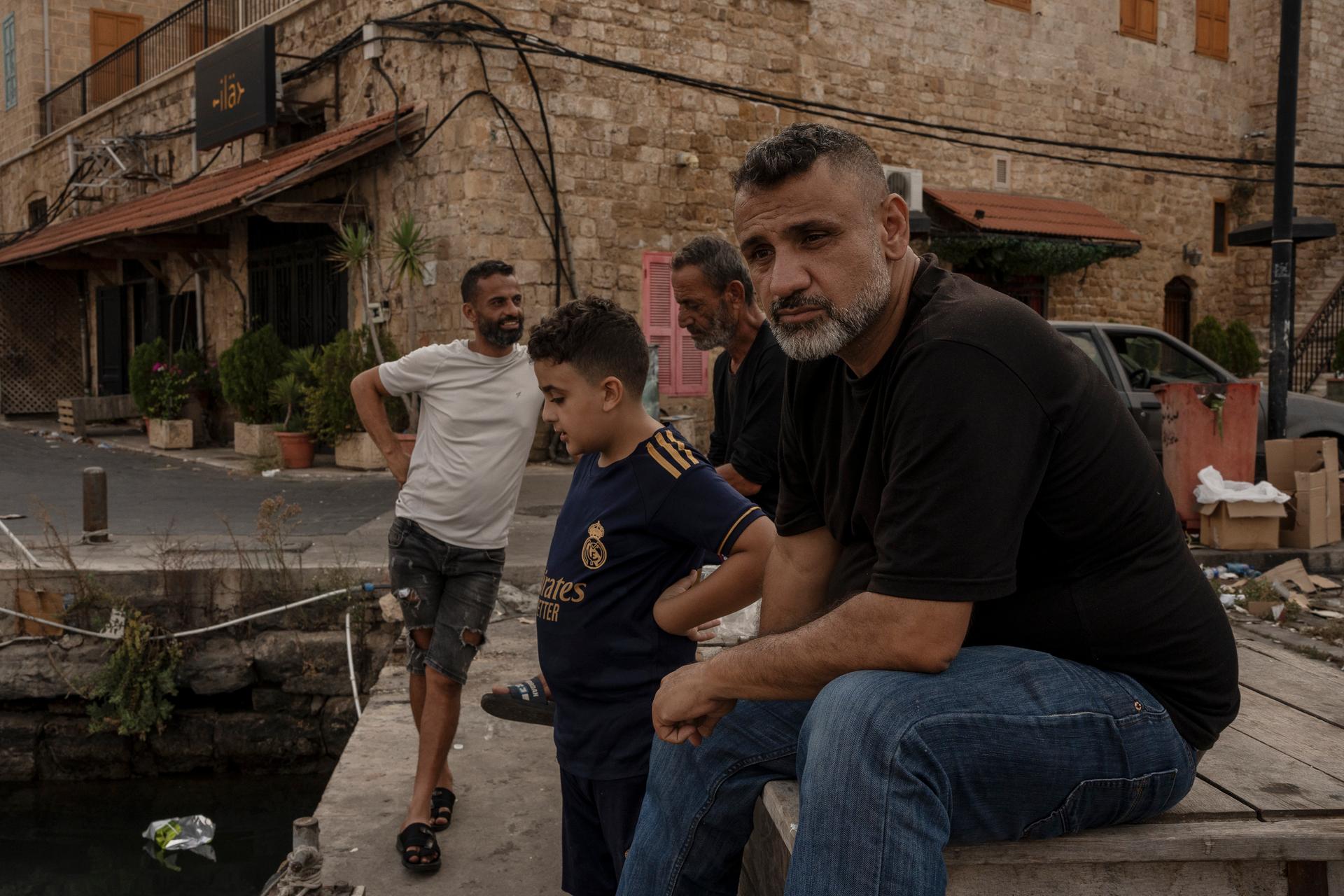


In Tyre, the capital of southern Lebanon, war is back
FeatureThe port city, which had been a stronghold of resistance to Israeli occupation in the 1980s and 1990s, has seen most of its population leave. The city's central districts have been the target of several deadly strikes.
On the dockside in Tyre's old port, fishermen sat, killing time. In the southern Lebanese port city, the Indian summer has stretched into October. Street life has slowed to a crawl, revolving around the few cafés and grocery stores that have stayed open to serve the few thousand inhabitants and displaced persons remaining in the city. The war raging between the Israeli army and the Shiite party Hezbollah has driven 40,000 people from Tyre. A fisherman repaired his nets, staying impassive when the dull thud of bombardments, which struck the edge of town at regular intervals, rang out. Two brothers, displaced from the suburbs of al-Bass, were waiting for the fish to take the bait.
The fishing boats were docked. "The Lebanese army forbids us to go out to sea because we risk being shot at by the Israelis," said Hamdi Najdi, a 46-year-old fisherman. On October 7, the Israeli army declared the entire Lebanese coast from Naqoura, near the demarcation line between Lebanon and Israel, to the city of Sidon, located 60 kilometers further north, to be an off-limits zone. Few fishermen have taken to the sea since September 23, when Israel launched an intensive campaign of strikes on southern and eastern Lebanon, as well as on the southern suburbs of Beirut, which has already claimed 1,200 lives.
That day, Najdi left al-Bass, on the outskirts of Tyre, with his wife and three children, out of fear of the bombings. A fisherman friend, who had left for Beirut, left him the keys to his house in Tyre's old town. He lives there with 31 members of his family, who are entirely dependent on aid from the municipal authorities. "God only knows how long we're going to stay here," said the fisherman. He knows the inhabitants of the old town, where he has always worked, well, but cohabitation is not so easy for other displaced people.

'We don't sleep at night'
"Some men have sent their wives and children north and stayed behind to guard the houses, as people are entering empty houses and breaking doors and windows," said Clemence Jouneh, a resident of the city's Christian neighborhood. From the terrace of a café, the 29-year-old Lebanese woman was keeping an eye on her 8-year-old son, who was fishing with a neighbor. Her husband, a soldier, is stationed at the Tyre base. "Hiiiiiiii," she shouted, startled by a bombing in the distance. "We're afraid it's going to become like Gaza here. We don't sleep at night. We have nothing to do with this war."
In the summer of 2006, the war had not spread to Tyre's old town. The Christian neighborhood is still untouched today, unlike the neighboring Shiite quarter. In a narrow alleyway, several old houses collapsed in early October, after an Israeli strike. Nine members of the Samra family, ranging from grandparents to grandchildren, were killed. A neighbor asserted that they were all civilians, while the father was a soldier. An apartment, 200 meters away, was also targeted, with an entire family inside. "They were Hezbollah sympathizers, but nothing more. After the bombing, the rest of the family only became all the more convinced to support the party," said a local resident.
You have 67.03% of this article left to read. The rest is for subscribers only.
